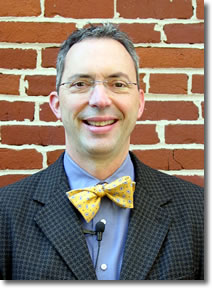Practicing Forgiveness
What good is forgiving when things aren't going to change?
 Most of what I know about forgiveness I’ve learned from a close friend. Let’s
call him “Bob.” I met Bob in seminary over twenty years ago and we’ve been
involved in each other’s lives ever since. Bob and I were drawn together because
we had similar religious backgrounds, and for a while our lives followed
parallel paths. We were both married in 1985, both to women who were just out of
college.
Most of what I know about forgiveness I’ve learned from a close friend. Let’s
call him “Bob.” I met Bob in seminary over twenty years ago and we’ve been
involved in each other’s lives ever since. Bob and I were drawn together because
we had similar religious backgrounds, and for a while our lives followed
parallel paths. We were both married in 1985, both to women who were just out of
college.
Bob’s wife, however, was not ready for the commitment of monogamy and began to have an affair within months of their wedding. Had Bob found out at the time, he might have been able to have their marriage annulled. But she did not disclose the affair until two years later, and then only because she had been caught in another act of infidelity.
So, two years into what he thought was a happy marriage, Bob learned that his wife had been repeatedly unfaithful. He was devastated, of course. But once the shock and hurt wore off, Bob found himself faced with a daunting question: How should he respond to the news of this betrayal? Should he divorce his wife? Since there were no children to cloud the picture, this was a real option. But what would God have him do? It was hard to see how God could blame him for moving to dissolve the marriage, since even the Bible allows divorce on the grounds of infidelity. But was the acceptable thing also the right thing?
What finally determined Bob’s path was his realization that forgiveness was at the core of what it meant to live as a Christian. If he wasn’t willing to forgive in this situation, what did forgiveness really mean?
After several months of marital alienation and the help of an expert counselor, Bob and his wife were able to reconcile. The counselor convinced Bob that the marriage would survive only if he were willing to forgive her, and so he did. As far as I know, he never mentioned the infidelity again, never disclosed it to family members, never held it over his wife.
In time Bob and his wife were blessed with children. He considered their marriage successful, their happiness accentuated by the storms they had weathered together. Then, just when Bob least expected it, the past came back to haunt him. After fourteen years, his wife announced abruptly that she no longer wanted to be married, no longer believed in marriage for that matter. She filed for divorce and moved out. Eventually, he learned the truth about her sudden change of heart: She had fallen in love and begun a relationship with someone else.
After three years of single-fatherhood, Bob remarried and is now happier than he ever dreamed of being. But in more reflective moments he questions his decision to forgive his ex-wife and try to repair a marriage that had been ruptured by infidelity. “What do you think?” Bob asked me recently. “Did I do the right thing back in ’87? If I’d divorced her, I would have saved myself a great deal of pain and embarrassment. More importantly, I would not have brought children into the world who must live with the legacy of betrayal and divorce.”
I wasn’t prepared for this. I had never heard Bob question the wisdom of that decision to forgive and move on, a decision that I admired more than he knew. I too had been through a painful divorce, had watched my children suffer through the chaos of a broken home. And, like Bob, I had since remarried, to a woman who has healed many of our family’s wounds.
“I won’t pretend to know the answer to your question,” I said. “But let me tell you what I’ve learned about forgiveness from watching you. And you tell me if I’ve got it right.
“First, you didn’t forgive the infidelity because you thought it would fix your marriage; you forgave because you felt called by God to do so. Second, forgiving once does not mean you won’t have to forgive again. You hoped that your decision to forgive would keep her from repeating that mistake, but there were no guarantees, and you knew that. Third, the fact that you remarried in a church tells me that you’re willing to forgive again if necessary. Is that right?”
Bob thought for a moment. “I just can’t imagine having to go through that again,” he said. “But that’s not the question,” I responded. “The question is would you be willing to demonstrate your belief in forgiveness? Would the call to forgiveness be any weaker next time than it was before?” He had to admit that it wouldn’t.
I’m still not sure Bob is convinced that he did the right thing. But either
way his experience has taught me a lot about forgiveness—mainly that
forgiveness begets more forgiveness; that it becomes a habit, a practice that
enables us to live with the uncertainties of life without becoming jaded or
resentful. In some ways, I envy Bob. He knows things about forgiveness that he
doesn’t even know he knows.
Copyright ©2004 Stephen Haynes